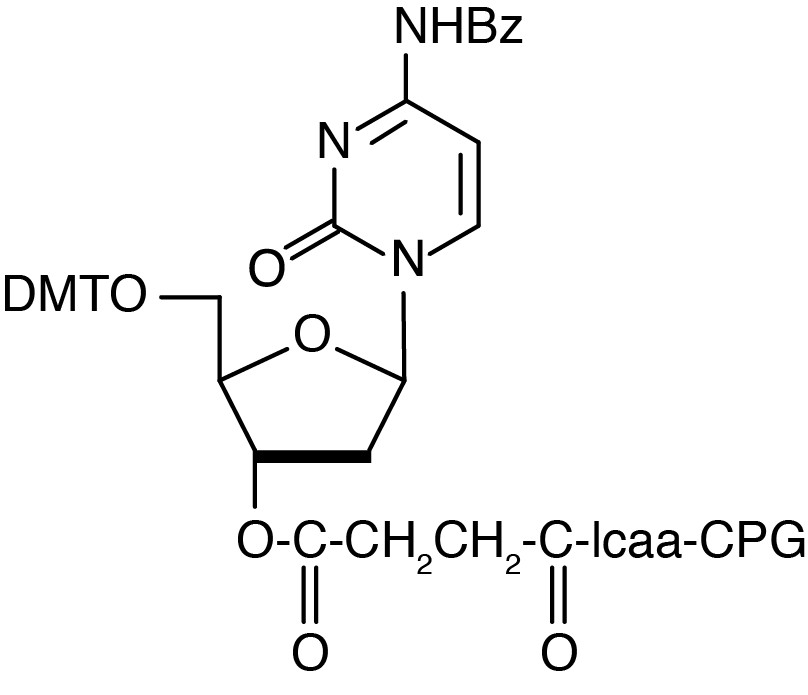
Catalog Number: 25-2010-xx
(25-2110-xx, 25-2210-xx)
Description: dC-High Load-CPG
5'-Dimethoxytrityl-N-benzoyl-2'-deoxyCytidine, 3'-succinoyl-
long chain alkylamino-CPG 500 |
|
|
F.W.: 289.18 |
|
| Coupling: This support should be used in a manner identical to normal protected nucleoside support since it contains the DMT group. |
| Deprotection: Deprotect using the protocol required by the nucleobases. |
| Storage: Controlled room temperature or lower, dry |
| Stability in Solution: 24 hours |
HIGH LOAD CPG
Our high loading support is based on controlled pore silica and it retains the usual 500Å pores. The spacer is also conventional. The only significant difference is the loading which is in the range 80 - 130µmoles/g or about 2.5 times the loading of normal 500Å CPG. Typical loadings for our high load CPG are in the 100 - 120µmoles/g range. As a consequence of the high loading, this support should not be used for sequences longer than 40mers. This high loading support is available in columns for most synthesizers. The 2.5µmole column is identical to our standard 1µmole column (with the exception of the loading). It should be used on occasions when greater than 1µmole is desired but when a 10 or 15µmole synthesis is too high. It should be run using the 1µmole cycle. The 25µmole column is identical to the 10µmole column used on Applied Biosystems synthesizers. It is run using the 10µmole cycle. The 35µmole column is used as an alternative to the 15µmole Expedite column. Again no changes to the standard cycle are recommended. The support is of course available in bulk for use on large-scale synthesizers. A word of caution is in order. When using a column with a higher load than recommended by the instrument manufacturer, there is a much smaller margin for error. All reagents must be fresh and anhydrous diluent and activator must be used. Should you decide to prepare higher-loading columns, ensure that the molar excess of monomer to support nucleoside is at least 5X and preferably 10X.
If you cannot find the answer to your problem then please contact us or telephone +44 (0)1954 210 200